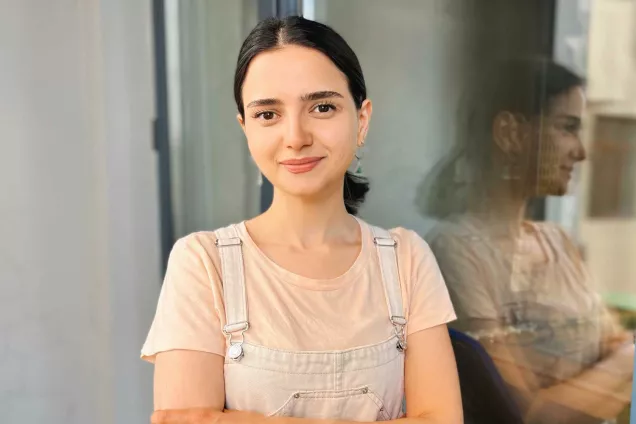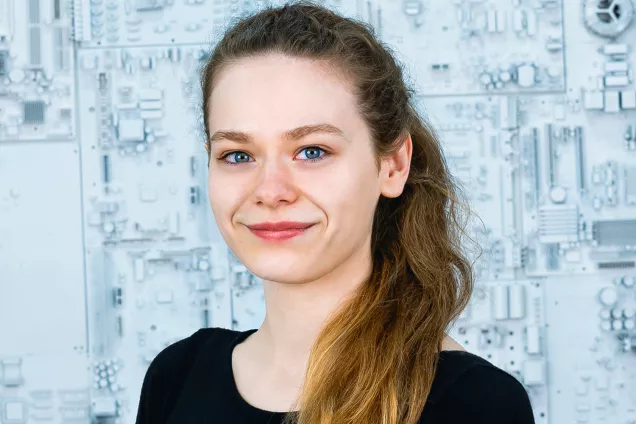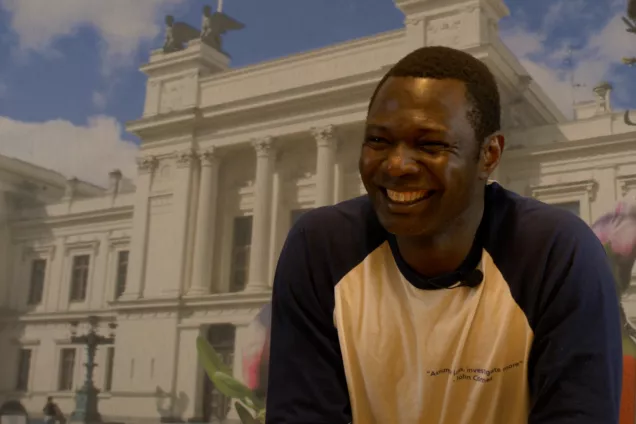Media and Communication Studies - Master of Science programme
Master's programme · 2 years · 120 credits

Description
Media and Communication Studies in Lund has a long tradition of being well tied in with research and society. The subject is interdisciplinary and is characterized by traditions of social sciences as well as those of the humanities.
Programme overview
The focus of this international Master’s programme is to offer a critical approach to contemporary social, political and cultural issuesin media and communications. We provide up-to-date engagement with key issues, theories and problems in media engagement, democracy and cultural citizenship, media industries and creativity, gender, health and society, audiences, popular culture and everyday life. Courses tackle contemporary debates about knowledge, power and social relations in national and transnational media environments.
Our teaching is based on international expertise in a high-ranking, research-led department (top 100, QS World University Rankings by subject 2023). We emphasise theorising and researching media, society and culture using real world case studies that are tailor made for our students who are taught diverse theoretical, conceptual and empirical tools for research through a mix of courses and independent research projects. Courses are taught in Lund and connect with collaborative partnerships with NGOs and cultural organisations in the region.
Students on our programme come from a diverse range of backgrounds and professional experiences, including media and cultural industries, NGOs and charity sectors, and develop critical understanding of media and communication during two years of cross-cultural meetings and exchange of ideas. Students participate in a lively research environment, where we run regular international conferences, seminars and events, on topics such as media freedom. Our community of international students and alumni help prepare you for further research and professional life, and our graduates go on to work in the media and communications field and pursue research track careers in public and commercial spheres.
Programme modules/courses
Our programme includes a range of dedicated theory and methods courses and optional courses. The portfolio of courses includes: Media and Political Engagement (15 credits), Media Audiences (15 credits), Media, Health and Society (15 credits), Media and Diversity (15 credits), Popular Culture (15 credits), Media and Communication Methodology (15 credits), Digital Media Research (7.5 credits), Digital Ethnography (7.5 credits) and Research Methods (7.5 credits), other optional courses, study abroad (30 credits), internship (15 and 30 credits), Master’s degree thesis (30 credits). Up to 7.5 credits of the second term and 30 credits of the third term can be replaced by elective courses.
Career prospects
Students graduating from this programme will be prepared for professional opportunities in research-led careers, education, academic careers, media and cultural industries, national and international policy and production sectors, commercial and public service organisations, and NGOs. Above all, graduates will have the critical skills necessary to evaluate and understand media in a range of professional and private spheres.
Further information
More information can be found at the programme website, including tips for applicants at https://www.kom.lu.se/index.php?id=57283
Open for applications
Application opportunitiesThis programme is open for applications from 15 October 2024 to 15 January 2025.
Contact
Programme coordinator
Michael Rübsamen
Email: master [at] kom [dot] lu [dot] se
Requirements and selection
Entry requirements
To be eligible for the programme the applicant must have the equivalent of a Swedish Bachelor’s degree with a major (i.e. at least 90 ECTS credits) in Media and Communication Studies or the equivalent
English course 6 (advanced proficiency)
Selection criteria
The applicants estimated capacity to complete the programme is the primary criterion for selection. Students are selected on the basis of their previous study results (grades on courses and Bachelor’s degree essay), proficiency in English and letter of intent.
English language requirements
Most of Lund University’s programmes require English Level 6 (unless otherwise stated under 'Entry requirements'). This is the equivalent of an overall IELTS score of 6.5 or a TOEFL score of 90. There are several ways to prove your English language proficiency – check which proof is accepted at the University Admissions in Sweden website. All students must prove they meet English language requirements by the deadline, in order to be considered for admission.
How to prove your English proficiency – universityadmissions.se
Country-specific requirements
Check if there are any country-specific eligibility rules for you to study Bachelor's or Master's studies in Sweden:
Country-specific requirements for Bachelor's studies – universityadmissions.se
Country-specific requirements for Master's studies – universityadmissions.se
Apply
Start Autumn Semester 2025
Day-time Lund, full time 100%
In English
Study period
1 September 2025 - 6 June 2027
Application
Last application date 2025-01-15
How to apply
Lund University uses a national application system run by University Admissions in Sweden. It is only possible to apply during the application periods.
Step 1: Apply online
- Check that you meet the entry requirements of the programme or course you are interested in (refer to the section above on this webpage).
- Start your application – go to the University Admissions in Sweden website where you create an account and select programmes/courses during the application period.
Visit the University Admissions in Sweden website - Rank your programme/course choices in order of preference and submit them before the application deadline.
Step 2: Submit documents
- Read about how to document your eligibility and how to submit your documents at the University Admissions in Sweden website. Follow any country-specific document rules for Master's studies or Bachelor's studies
Country-specific requirements for Bachelor's studies – universityadmissions.se
Country-specific requirements for Master's studies – universityadmissions.se
- Get all your documents ready:
- official transcripts and high school diploma (Bachelor's applicants)
- official transcripts and degree certificate or proof that you are in the final year of your Bachelor's (Master's applicants)
- passport/ID (all applicants) and
- proof of English proficiency (all applicants).
- Prepare programme-specific documents if stated in the next paragraph on this webpage.
- Upload or send all required documents to University Admissions before the document deadline.
- Pay the application fee (if applicable – refer to the section below on this webpage) before the document deadline.
* Note that the process is different if you are applying as an exchange student or as a part of a cooperation programme (such as Erasmus+).
* If you have studied your entire Bachelor's programme in Sweden and all of your academic credits are in Ladok, you do not have to submit transcripts or your diploma when applying for a Master's programme. However, there may still be other documents you need to submit! See the link below.
* Svensk student?
Läs instruktionerna om att söka till ett internationellt masterprogram på lu.se
Programme-specific documents
In addition to the documents mentioned in Step 2, you must also submit:
- A CV
- A statement of purpose (letter of intent) of 500 words.
We are looking for applicants with a strong fit with our programme profile. When writing your statement, think about the following questions as a means to structure your comments: What do you hope to contribute to our programme? How does your educational background and/or professional expertise prepare you for this programme? In what ways can this programme enrich your educational development? Make sure to carefully consider our profile and follow the tips stated on the website listed below.
Application tips on the Department of Communication and Media website
Tuition fees
Non-EU/EEA citizens
Full programme/course tuition fee: SEK 250 000
First payment: SEK 62 500
Citizens of a country outside of the European Union (EU), the European Economic Area (EEA) and Switzerland are required to pay tuition fees. You pay one instalment of the tuition fee in advance of each semester.
Tuition fees, payments and exemptions
EU/EEA citizens and Switzerland
There are no tuition fees for citizens of the European Union (EU), the European Economic Area (EEA) and Switzerland.
Application fee
If you are required to pay tuition fees, you are generally also required to pay an application fee of SEK 900 when you apply at the University Admissions in Sweden website. You pay one application fee regardless of how many programmes or courses you apply to.
- Paying your application fee – universityadmissions.se
- Exemptions from paying the application fee – universityadmissions.se
- Convert currency – xe.com
*Note that there are no tuition or application fees for exchange students or doctoral/PhD students, regardless of their nationality.
Scholarships & funding
Lund University Global Scholarship programme
The Lund University Global Scholarship programme is a merit-based and selective scholarship targeted at top academic students from countries outside the EU/EEA.
Lund University Global Scholarship
Within the framework of the Lund University Global Scholarship programme, the University also offers the African Research Universities Alliance (ARUA) Scholarship targeted at top academic students from selected African research universities.
Swedish Institute Scholarships
The Swedish Institute offers scholarships to international students applying for studies in Sweden at Master's level.
Scholarship information on the Swedish Institute website
Country-specific scholarships and funding options
Lund University has agreements with scholarship organisations and funding bodies in different countries, which may allow applicants to apply for funding or scholarships in their home countries for their studies at Lund University.
External scholarships
Testimonials about this Master's

Meet our student ambassador Diana
Read her testimonial and chat with her via Unibuddy.

"It can really make you think in ways you never expected"
Barbora from Slovakia

"This has opened my eyes and expanded my horizon"
Danicius from Liberia
Alumni stories
Read more testimonials about this programme on the Department of Media and Communication website.